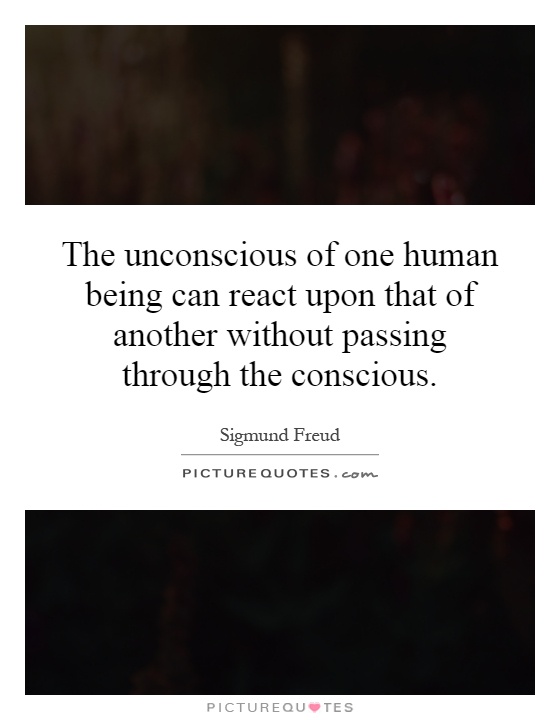The unconscious of one human being can react upon that of another without passing through the conscious

The unconscious of one human being can react upon that of another without passing through the conscious
Sigmund Freud, the father of psychoanalysis, was a firm believer in the power of the unconscious mind and its ability to influence not only an individual's thoughts and behaviors, but also those of others. In his groundbreaking work, Freud explored the concept of the unconscious and its role in shaping human behavior, relationships, and society as a whole.One of Freud's most famous theories is that of transference, which is the process by which unconscious feelings and desires are transferred onto another person, often a therapist or authority figure. According to Freud, these unconscious feelings can be positive or negative, and can have a profound impact on the dynamics of the relationship between the two individuals.
Freud believed that the unconscious mind is a powerful force that can shape our thoughts, emotions, and behaviors in ways that we are not always aware of. He argued that our unconscious desires and fears can manifest themselves in our dreams, slips of the tongue, and other forms of "Freudian slips" that reveal our hidden thoughts and feelings.












 Friendship Quotes
Friendship Quotes Love Quotes
Love Quotes Life Quotes
Life Quotes Funny Quotes
Funny Quotes Motivational Quotes
Motivational Quotes Inspirational Quotes
Inspirational Quotes